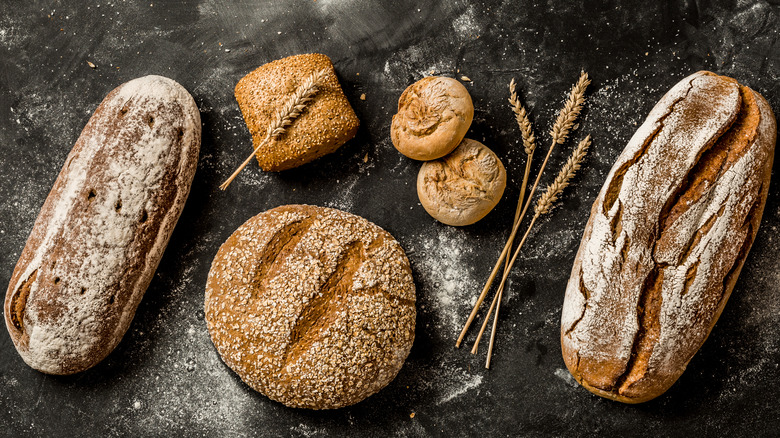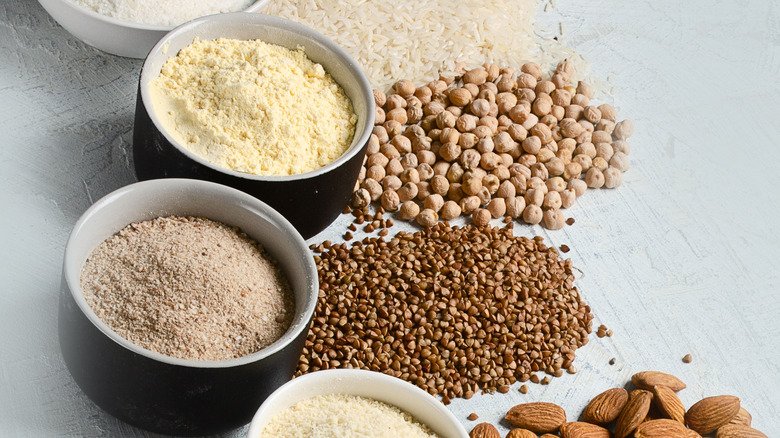The Biggest Mistake You're Making With Gluten-Free Baking
When it comes to baking, exact measurements are fundamental. Baking is chemistry in action, where each ingredient plays an important role in the flavor, texture, and form. Cooking, on the other hand, is more forgiving and allows for more improvisation and flexibility without a lot of worry about how the combination of ingredients will interact and react to each other.
If following a standard baking recipe has left you scratching your head as to why your cake, brownies, or bread didn't come out of the oven as you imagined, trying gluten-free baking can feel even more complicated. Now you have more variables and different types of binding ingredients, such as flaxseed instead of eggs or alternative flours or gums to experiment with for successful gluten-based baking.
So if you've been contemplating a few gluten-free recipes and aren't sure how they will work out or maybe you already have tried out your friend's delicious flour-free chocolate cake and don't understand why yours doesn't turn out like theirs, it could be for several reasons. After so much time, energy, and ingredients, it can be a letdown to discover your effort didn't work out. There are a few reasons why a batter may not combine — or bind — well. In fact, choosing the wrong binding agent might be one of the biggest mistakes you're making in your gluten-free baking journey. So before you throw in the towel, here are a few things to consider before you bake your favorite gluten-free treats.
Know which binding agents are best for your recipe
Before you completely give up on gluten-free baking, reassess the binding agents you are using (or in this case, may not be using). Flour is an essential ingredient in gluten-based baking and that's because it's a binding agent, which helps mix and fuse the ingredients together. Plus, this binding agent helps create texture and volume to your baked goods, per TheFoodsGuy.
When you opt for alternative flours, it's important to check if they will bind the ingredients, according to Food and Wine. If the ingredients aren't compatible, you'll want to reassess your recipe to ensure the best results. Otherwise, you can expect that your cake or bread may be a flop instead of a rising success. Some alternative flours, such as chickpea flour, sorghum flour or buckwheat flour can all be used but it's important to do some research to see if it's ideal for what you plan to bake since each type of flour will bring a different flavor and texture to your baked creation. There are also other options, such as guar gum or xanthan gum that are used as binding agents, according to Food and Wine, as well as flaxseeds and chia seeds that can be an option, per The FoodsGuy.
Now that you know what may be throwing your batter off course, you can experiment with different binding agents so the next recipe you try is a delectable success.

